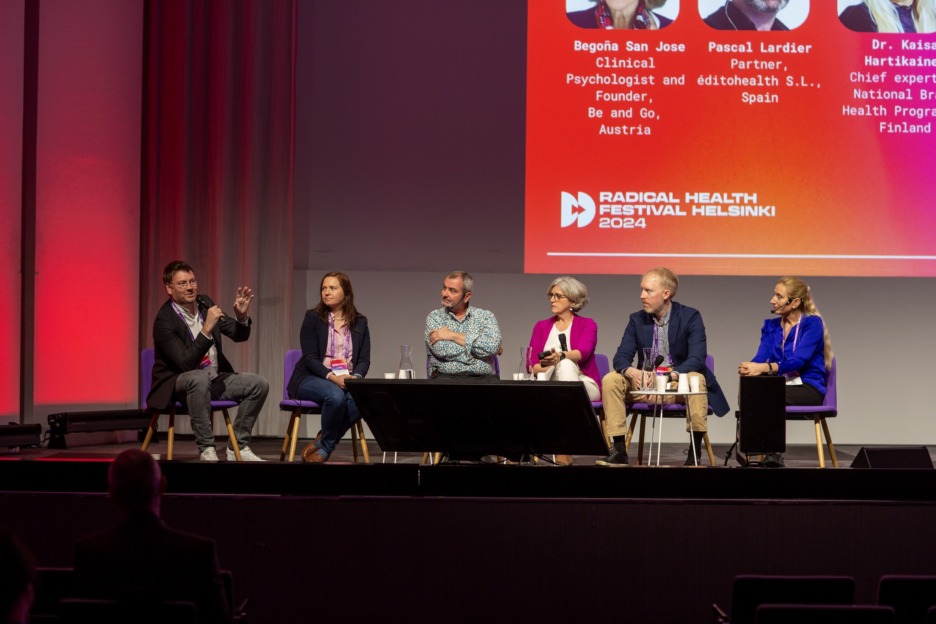Turning Health Systems into Precision Health Systems

Beyond precision medicine, precision health.
While precision medicine has revolutionised disease treatment through tailored therapies based on genetic and environmental factors, precision health takes a broader and more proactive approach: while diseases and acute care will never go away, precision health is about focusing more of our energy on predicting, preventing, targeting and personalising health interventions before diseases occur, fundamentally shifting healthcare from a reactive to a preventive model. More than just preventing diseases, precision health takes a lifelong approach that also focuses on preventing complications in individuals who already have existing health conditions.
Precision health is still an emerging approach that integrates data from genetics, environment, lifestyle, and digital health technologies to maintain and optimize individual and population health. Unlike precision medicine, which primarily focuses on treating diseases, precision health prioritizes primary, secondary and tertiary prevention. Primary prevention involves preventing diseases before they develop through interventions such as vaccinations, lifestyle modifications, and environmental changes. Secondary prevention focuses on early detection and intervention to halt disease progression, utilising screenings, genetic risk assessments, and continuous health monitoring. Tertiary prevention aims to prevent complications and improve quality of life for individuals already living with chronic conditions. By combining these layers of prevention, precision health ensures a comprehensive and proactive healthcare model that supports individuals at all stages of life.
Why such a radical paradigm shift?
Traditional healthcare models primarily focus on diagnosing and treating diseases after they have developed. This reactive approach drives up healthcare costs, worsens patient suffering, and places a greater strain on medical infrastructure. Precision health aims to shift the focus toward early detection and prevention, reducing the incidence of chronic diseases such as diabetes, heart disease, and cancer. By incorporating both primary, secondary and tertiary prevention strategies precision health promotes risk reductions at multiple levels while ensuring that individuals already diagnosed with a chronic condition receive optimal care to prevent complications and maintain quality of life.
Chronic conditions account for a significant portion of global healthcare expenses. By utilising precision health strategies—such as genetic risk assessment, lifestyle modifications, and continuous health monitoring—health systems can prevent costly treatments and hospitalisations. Early intervention strategies mitigate long-term healthcare expenditures and improve the economic sustainability of our health systems. Additionally, by implementing tertiary prevention measures to manage chronic diseases effectively, health systems can reduce costly emergency visits and hospital readmissions. Precision health also provides individuals with actionable insights tailored to their unique biological and environmental profiles. With the advent of digital health tools, people can track their own health metrics in real-time, enabling them to make informed decisions about nutrition, exercise, and overall well-being. This proactive involvement fosters a sense of ownership over one’s health, leading to healthier populations and reduced strain on healthcare providers.

The integration of artificial intelligence and advanced data analytics into practice is now allowing for more accurate predictions and personalised recommendations. Wearable devices, mobile health apps, and continuous monitoring solutions are just a few examples of how technology is revolutionising health management. By leveraging these tools, precision health can offer scalable, data-driven solutions that benefit both individuals and entire populations.
Operationalising precision health
To successfully transition from a traditional health system to a precision health systems requires a radical paradigm shift:
- Innovating policy and regulatory frameworks;
- Rethinking healthcare finance and payment models to incentivise prevention;
- Ensuring ethical concerns surrounding health data are addressed to enable precision while preserving privacy from invasive interventions;
- Preparing health data infrastructures for improved collection, storage, analysis, access
- Leveraging artificial intelligence, advance analytics, wearable technologies, and the latest advancements for risk stratification, prediction, early detection and personalised interventions
- Upskilling and onboarding health and social care professionals as well as citizens to embrace the benefits of personalised health insights and preventive care.
- Fostering partnerships between governments, healthcare institutions, tech companies, and researchers to drive innovation and accessibility.
- Leading, engaging, managing change
Precision health represents the next frontier in healthcare, shifting from a reactive disease-treatment model to a proactive, preventive, and personalised approach. By embracing this paradigm shift, health systems can improve patient outcomes, reduce costs, and create healthier societies. Implementing precision health at a global scale requires strategic investments, policy changes, and technological advancements, but the long-term benefits far outweigh the challenges. The future of healthcare lies in preventing diseases before they start, and precision health—through primary, secondary, and tertiary prevention—is the key to achieving this vision and ensuring a lifelong approach to health management. While the paradigm shift may seem radical, this transition is already happening, and the 3rd edition of the Radical Health Festival Helsinki happening on January 19-21 will bring you examples from around the world to prove it.
Pascal Lardier, Principal, éditohealth and Content Lead, Radical Health Festival





